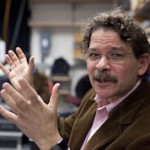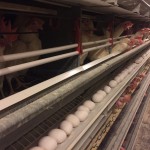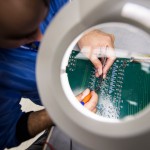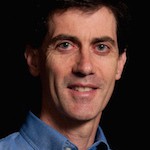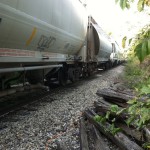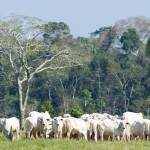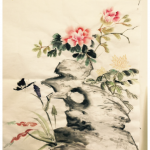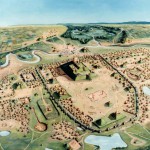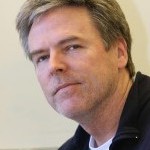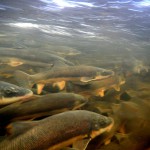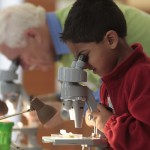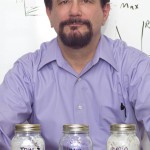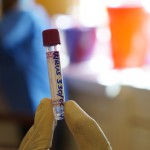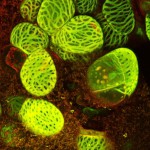Category Science & Technology
Navigating multiple myeloma with ‘Google Maps’ for the cancer genome
In some ways, studying the genetics of cancer has been like examining the individual tiles on a mosaic, says David C. Schwartz, a professor of genetics and chemistry at the University of Wisconsin–Madison. To make his point, he brings his face close to the table where he sits - his mosaic for the purpose of illustration - and describes the details of each imaginary tile.
Family affair: Milwaukee electronics manufacturer is flying high
From a distance of practically eight decades, Nathaniel Zelazo can smile about the failure of his first entrepreneurial venture. A Polish Jew who landed in New York in 1928 at age 10, he earned money for his schoolbooks peddling ice cream on the streets of Manhattan. "Needless to say, I had no license and got arrested," he recalls. "The guys in the same cell were killers and my liquid assets were melting."
Genetic approaches to cancer, neural development lead to honor for UW–Madison scientists
Two University of Wisconsin–Madison researchers - one investigating the genetic basis of cancer growth and the other, the role of genes in neural development and learning - have earned funding and a prestigious honor from the Greater Milwaukee Foundation.
UW-Madison student wins essay competition
University of Wisconsin–Madison student Madeline Gore is one of three undergraduate student winners of the annual UW System Liberal Arts Essay Scholarship Competition. Now in…
Expert in computer science drives computer-security spinoff
One illustrious career in computer science at the University of Wisconsin–Madison can be traced to an anxious mother, a cocktail party conversation, and a "dead boring" job - plus a fascination with low-level machine code, a subject that many computer scientists disdain.
Giving freight rail tracks a boost
The big chunks of rock - crushed limestone or dolomite that engineers call ballast - that keep railroad tracks in place look like a solid footing even as freight cars rumble overhead.
Brazilian beef industry moves to reduce its destruction of rain forests
Expansion of cattle pastures has led to the destruction of huge swaths of rain forest in Brazil, home to the world's largest herd of commercial beef cattle. But a new study led by the University of Wisconsin–Madison's Holly Gibbs shows that market-driven "zero deforestation agreements" have dramatically influenced the behavior of ranchers and the slaughterhouses to which they sell.
As the river rises: Cahokia’s emergence and decline linked to Mississippi River flooding
As with rivers, civilizations across the world rise and fall. Sometimes, the rise and fall of rivers has something to do with it. At Cahokia, the largest prehistoric settlement in the Americas north of Mexico, new evidence suggests that major flood events in the Mississippi River valley are tied to the cultural center’s emergence and ultimately, to its decline.
UW honors noted entrepreneurs with achievement awards
The University of Wisconsin–Madison Entrepreneurial Achievement Awards this year honor a graduate of the Department of Computer Sciences who co-founded the company that’s now WebMD, and a Department of Animal Sciences professor who has turned his patented technologies into startup companies.
McArdle’s Bradfield named interim WID director
Christopher Bradfield, a University of Wisconsin–Madison professor of oncology, has been appointed interim director of the Wisconsin Institute for Discovery (WID).
2015 Wisconsin Science Festival seeks proposals
Planning for the 2015 Wisconsin Science Festival, to be held Oct. 22-25 in Madison and around Wisconsin, is actively underway.
UW-Madison startup marries digital, physical worlds
A startup business that wants to link the realm of physical objects to the digital world of the Internet is basing its future on low-cost, highly engineered, one-of-a-kind plastic stamps.
Business will implement new phosphorus recycling process in Midwest
A University of Wisconsin–Madison startup is helping Midwest cities remove pollutants from wastewater through a new process that will benefit local farmers, too.
Compact UV lasers could identify substances from a distance
For soldiers in the field, the ability to identify an object or substance based on how it responds to light could mean the difference between life and death. They could, for example, determine from a safe distance if an approaching person or vehicle is carrying an explosive device or dangerous biological agent.
In Sierra Leone, a chance to learn from Ebola
When Yoshihiro Kawaoka and members of his research team first arrived in Sierra Leone in December 2014, the consistent wail of ambulance sirens was a frightening reminder that the Ebola virus was there, too.
Messing named director of Waisman Center
Albee Messing, a University of Wisconsin–Madison professor of comparative biosciences and an international leader in research on Alexander disease, has been named director of the Waisman Center, UW–Madison School of Medicine and Public Health Dean Robert Golden announced April 14.

